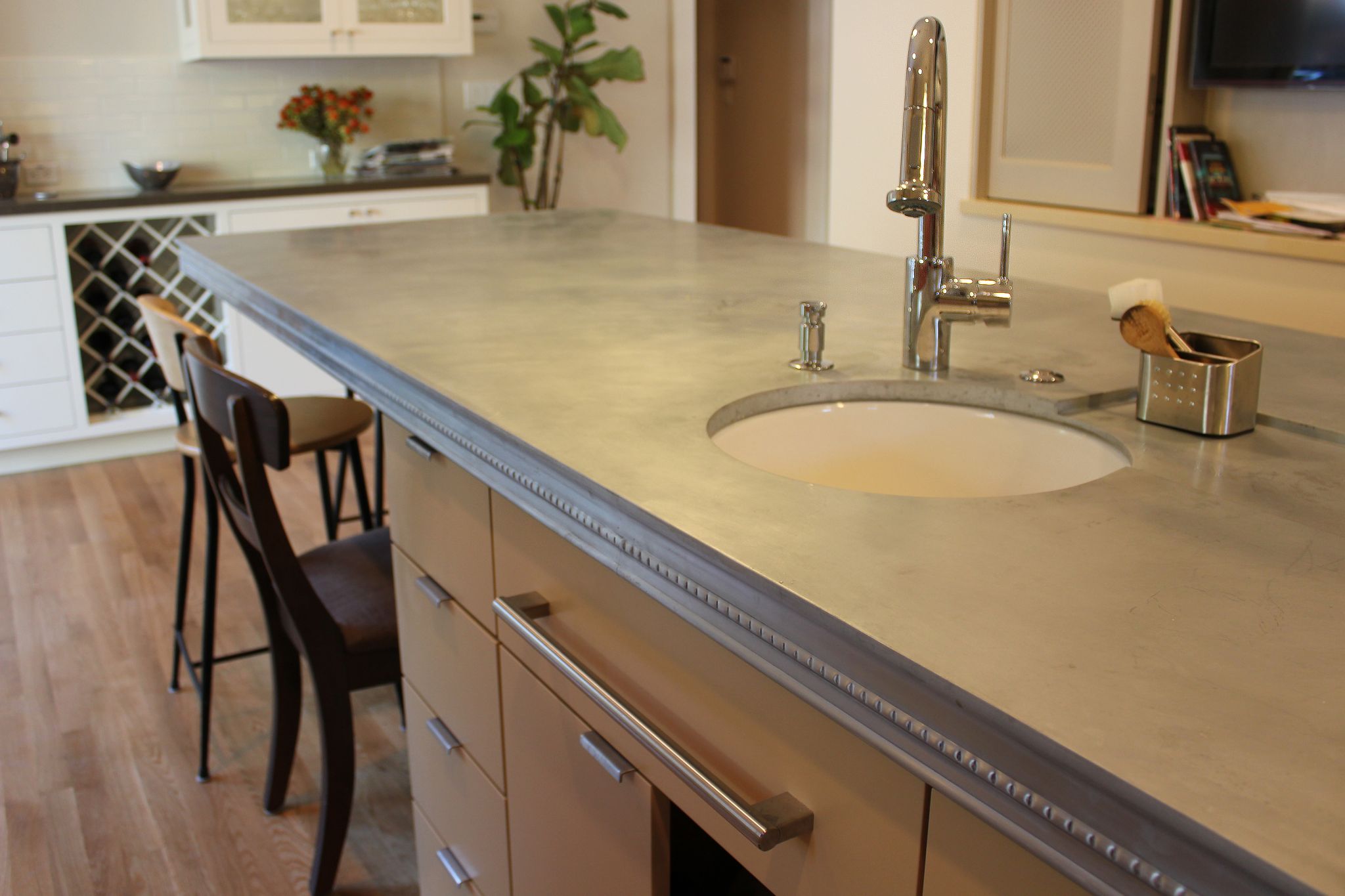Zinc is an industrial-looking countertop material that’s got unique characteristics. Primarily, zinc develops a patina with age that some home owners really like.
Zinc reacts with water, fingerprints, lemon juice, and all sorts of other things that land on a kitchen counter. Eventually, the marks blend together and leave the countertop with a beautiful, dark blue-gray patina. But that can take a year -- a long time if you cringe at seeing a spot.
Zinc is also bound to disappoint if you try to keep a shiny new look by polishing the countertop frequently. It’s possible, but why do so much work? You’d be better off with stainless steel, since it stays shiny with no special effort.
What's Likeable About Zinc?
1. Zinc is a less-pristine alternative to stainless steel because it’s a “living metal” that changes color over time in reaction to its surroundings.
2. It’s naturally non-porous, so you can clean it with just soap and water.
3. It has anti-bacterial properties similar to copper, making it a great surface for prepping food.
4. The metal is easy to work with, so it’s easy to include decorative edges in various shapes and styles. Fabricators also can create an integral zinc sink by welding parts together and grinding seams smooth, making cleanup a breeze.
What's Not to Like?
1. Zinc is soft, so it scratches easily if you cut directly on it. Be sure to have cutting boards handy.
2. It can warp if someone sets down a pot hotter than about 300 degrees (set down a red-hot iron pot and the zinc could melt). Be sure to tell guests not to set hot items on your zinc countertop! Keep trivets nearby.
3. Price is an eye-opener. A zinc countertop costs $150 to $200 per sq. ft., depending on the thickness of the metal (you’ll want 15-gauge material that’s at least .060 thick). Stainless steel costs less, and granite is even cheaper.
Other Cost Considerations
1. Zinc is an expensive material that’s not for everybody. Make sure your decision to install a zinc countertop is in line with the style and features of other homes in your neighborhood. Less-expensive options may have a better return on your investment.
2. You’ll pay an additional 10% to 15% installation charge for unusual or complex countertop shapes.
3. Be sure to get several bids before committing to a zinc countertop. Ask if your countertop fabricator has had experience making zinc countertops, and ask to see examples of their work. Try getting bids from sheet metal fabricators, not just companies that specialize in installing countertops.
4. Some zinc sheets are “seconds” — meaning they already have stains and discolorations. If that kind of patina isn’t objectionable, you can save 10% to 20% on your countertop by opting for seconds.
Related:
